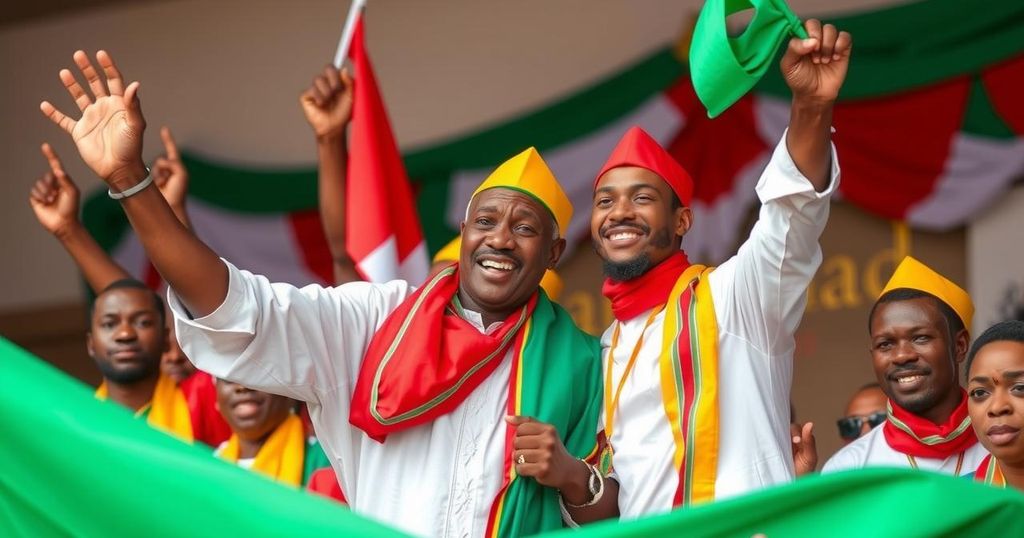Chad’s ruling Patriotic Salvation Movement party won 124 out of 188 seats in the recent parliamentary elections with a voter turnout of 51.5%. This election, which happened after more than a decade, was boycotted by key opposition parties, strengthening President Mahamat Idriss Deby’s grip on power. The election is seen as crucial for Chad’s transition towards democracy amid ongoing security challenges.
Chad’s ruling Patriotic Salvation Movement party has achieved a significant victory in the recent parliamentary elections, obtaining 124 out of 188 seats, according to provisional results announced by Ahmed Bartchiret, head of the electoral commission. This election marked the first parliamentary contest in more than ten years and was characterized by a voter turnout of 51.5%. The elections, which also included local and regional contests, were viewed as a pivotal moment in the nation’s transition towards democracy after Mahamat Idriss Deby ascended to power in 2021 following the death of his father, former President Idriss Deby Itno.
President Mahamat Idriss Deby had previously indicated that the election was a crucial step in establishing decentralized governance, offering potential for greater local autonomy. Notably, major opposition parties, including the Transformer party led by Succes Masra, chose to boycott the election, terming it a “charade” that lacked legitimacy. This absence of significant competition has effectively reinforced Deby’s control over the political landscape. The main opposition has yet to comment on the results publicly.
This parliamentary election occurred during a tumultuous period for Chad, grappling with various security threats, including escalating militant attacks from Boko Haram in the Lake Chad region and deteriorating relations with France, which has historically been a key ally. The situation underscores both the urgency and complexity of Chad’s political dynamics as the country strives for a stable and democratic future.
In the context of recent political developments in Chad, the parliamentary elections represent an important milestone following years of military rule. The elections were intended to facilitate a transition towards a more democratic governance structure after Mahamat Idriss Deby took over leadership amidst political upheaval and security challenges. The ruling party’s dominance in these elections reflects both the lack of viable opposition and the consolidation of power within Deby’s administration, following a contested presidential election in 2022 that raised questions over electoral integrity. The opposition’s boycott of the elections serves as a significant commentary on the perceived inadequacies of the political process within the country, casting doubts on the genuine prospects for democratization.
In conclusion, the recent parliamentary elections in Chad have resulted in a decisive victory for the ruling Patriotic Salvation Movement party, securing a majority of seats amidst a significant opposition boycott. This outcome consolidates President Mahamat Idriss Deby’s authority, reaffirming his grip on power during a critical time for the nation, which is confronting multifaceted challenges ranging from security threats to geopolitical tensions. The lack of credible opposition raises ongoing concerns about Chad’s commitment to a democratic trajectory, which remains to be seen in the aftermath of these elections.
Original Source: www.euronews.com






